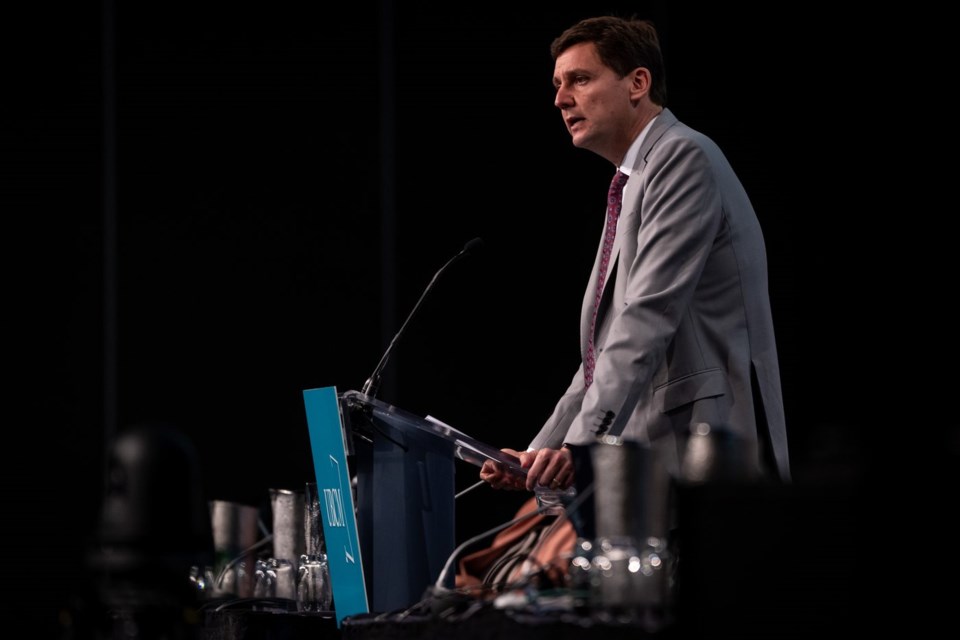VANCOUVER — Current support services for severely mentally ill and drug addicted people aren't working for hundreds of British Columbians, and "secure" involuntary care sites around the province are a new tool to help them, B.C. Premier David Eby says.
In a speech to local politicians from cities around the province on Thursday, Eby said public safety is a priority especially in downtown cores, where many people are seen "visibly" struggling with addictions.
"There are two goals that we're trying to address here," Eby told the Union of B.C. Municipalities conference in Vancouver. "One is to make sure that the people who are struggling in our community so visibly, whether they're just lying face down on a sidewalk or whether they're yelling and screaming and causing fear and confusion and concern in the community, that they are safe, that they are looked after and they are supported with the care that they need."
Eby said the other goal, "which is just as critical," is ensuring that residents feel safe in their downtown communities.
"This initiative will help us get there," Eby said.
He said he's already heard from representatives of communities who want a "secure" site to offer involuntary care in their cities.
He welcomed their interest because people undergoing forced treatment need to "stay closer to home" and maintain community connections, he said.
Speaking with reporters after his speech, Eby said that 250 more RCMP officers have been added around the province in smaller communities that have been historically understaffed as complaints grow from business owners about vandalism and street disorder.
He said policing is only part of the solution, and needs to be paired with social supports, mental-health resources and housing to "address the issues that we face."
The premier said the first sites to offer the involuntary treatment include the Surrey pretrial centre and the Alouette Correctional Centre, while other buildings identified will require "minor renovations."
Eby said the province has opened treatment beds and introduced a phone line to help people connect with services, but the current system doesn't work for everyone.
"There's a group of people that are not succeeding," he said. "When they're in social housing, they're assaulting staff and their neighbours. They're starting fires. When they're in hospital, they're using drugs in the hospital bed."
"What we have in place isn't working for this group," he added.
Eby said there are "unfortunately hundreds" of British Columbians in need of "intense care" in secure sites that they can't "just walk out of."
The province will "ensure that it's dignified," and he said those receiving care at the Surrey Pretrial Centre have already been sent to jail, without being offered treatment, "they're going to be released back in their community, probably in worse shape than they went in."
"It is not simple," Eby said. "This is a very challenging group to house, and we have not been successful to date."
This report by The Canadian Press was first published Sept. 19, 2024.
Darryl Greer, The Canadian Press



